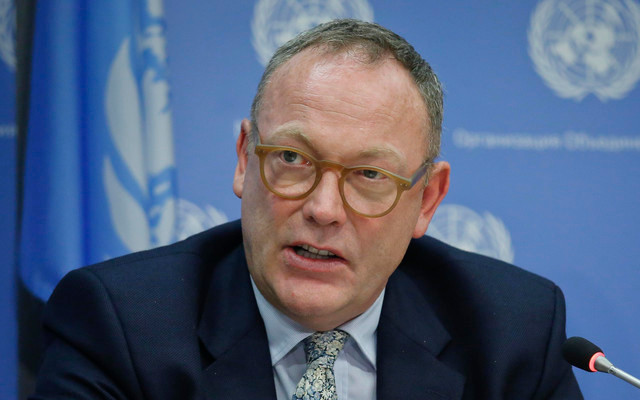On 4 May 2017, Ben Emmerson, the United Nations Special Rapporteur on the promotion and protection of human rights while countering terrorism, returned from a five-day visit of Saudi Arabia. Upon the conclusion of his trip, he released his preliminary observations. While he noted that the Saudi government was engaging in some positive steps to promote human rights while countering terrorism, he also expressed deep concern over violations of core human rights. Americans for Democracy & Human Rights in Bahrain (ADHRB) welcomes the Rapporteur’s critical observations, particularly concerning the use of torture and misuse of the country’s counter-terror law.
From 30 April to 4 May, the Rapporteur was in Saudi Arabia on a trip to “assess [the] progress Saudi Arabia achieved in its laws, policies and practice in the fight against terrorism, measured against international human rights law.” In his observations, the Rapporteur noted several positive issues, including his discussions with important officials and efforts by the government to support victims of terrorism. He also commended the government’s efforts to counter the spread of violent extremism, the conditions of detention in prisons for housing terrorists, and the facilities of the terrorist-rehabilitation center, the Mohammed bin Nayef Counselling Center.
The Rapporteur was also highly critical of Saudi Arabia’s efforts to counter terrorism while ensuring that fundamental human rights would remain unviolated. Emmerson expressed strong concerns over the government’s campaign against human rights defenders, journalists, activists, bloggers, and other peaceful critics. He raised the issues of torture, use of confessions during interrogations that were obtained under torture, and the application of capital punishment. The Rapporteur’s strongest point of criticism concerned Saudi Arabia’s “unacceptably broad definition of terrorism,” as laid out in the 2014 anti-terror law. According to Emmerson, the law “fails to comply with international human rights standards of legal certainty” and “enables the criminalization of a wide spectrum of acts of peaceful expression.”
“We welcome the Rapporteur’s visit to Saudi Arabia, but we are skeptical regarding his laudatory comments. Rather than praising the government, the Rapporteur should note that the Saudi government is one of the most prominent exporters of violent extremism through its brand of religious fundamentalism,” states Husain Abdulla, Executive Director of ADHRB. “But the Rapporteur also rightly expressed deep concern over issues of systematic torture and the application of capital punishment particularly against peaceful critics, bloggers, and activists. Saudi Arabia should take these remarks and recommendations to heart. We also urge Saudi Arabia to take the Rapporteur’s recommendation and invite the Rapporteur on torture to visit the kingdom.”
Saudi Arabia routinely uses its 2014 anti-terror law to target and prosecute activists, bloggers, critics, and human rights defenders. Among the imprisoned victims of the government’s campaign to suppress dissent are members of the human rights and political reform organization, the Saudi Political and Civil Rights Association, Waleed Abu al-Khair, a prominent lawyer who defended Raif Badawi among others, Ahmed al-Mushaikhass, Essam Koshak, and Fadhil al-Manasif. Saudi officials have also sentenced activists and critics to death under the anti-terror law, including Yusuf al-Mushaikhass, Ahmed al-Mushaikhass’ brother, and Ali al-Nimr, Dawood al-Marhoon, and Abdullah al-Zaher, who were minors at the time they allegedly committed their crimes.
ADHRB agrees with the Rapporteur’s preliminary comments concerning the overly broad and permissive nature of the counter-terror law and the government’s use of the law to justify torture and extracting confessions through torture for the purpose of prosecution. Saudi Arabia must not only take note of the Rapporteur’s comments, but integrate them into its legal system to protect and promote human rights in the context of countering terrorism.





